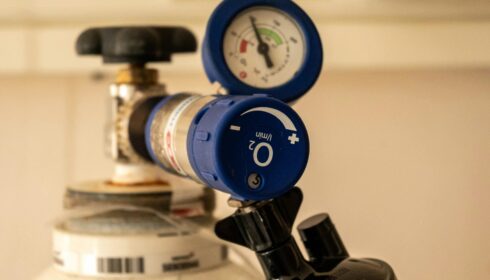Xian Su

Dexmedetomidine for prevention of delirium in elderly patients after non-cardiac surgery: a randomised, double-blind, placebo-controlled trial
Xian Su et al. Lancet 2016; 388:1893-1902
Clinical Question
- In elderly patients following non-cardiac surgery, does a low dose dexmedetomidine infusion, when compared with placebo, decrease the incidence of delirium?
Design
- Randomised controlled trial
- Computer random number generation
- Sealed envelopes
- Double-blinded
- Blinding of outcome assessors who were not involved in patient care
- Superiority trial
- Parallel arm placebo
- Power calculation: 656 patients required to demonstrate a reduction of one third from baseline incidence of 28%, with a false positive rate of 5% and a false negative rate of 20%
- Intention to treat analysis
- Follow up for 30 days post surgery
Setting
- 2 tertiary care hospitals in Beijing, China
- Data collected: August 2011 – November 2013
Population
- Inclusion criteria:
- ≥65 years old
- Elective non-cardiac surgery under General Anaesthetic
- Admitted to ITU before 20:00 on day of surgery (intubated or extubated)
- Exclusion criteria:
- Schizophrenia, Epilepsy, Parkinson’s, Myasthenia Gravis
- Inability to communicate pre-operatively e.g. dementia, language barrier
- Brain injury or neurosurgery
- Physiological derangement pre-operatively
- LV Ejection Fraction < 30%
- Sick sinus syndrome
- Sinus bradycardia <50 bpm
- 2nd or 3rd degree AV block
- End stage renal or hepatic dysfunction
- Low likelihood of survival for >24 hours
- Participant numbers
- 2016 patients assessed for eligibility. 835 patients eligible, 135 refused participation
- 700 patients included in trial; all included in analysis
- Comparing baseline characteristics of dexmedetomidine vs. placebo group:
- Benzodiazepine on pre-operative night: 11% vs. 11%
- Intra-operative:
- Midazolam: 44% vs. 49%
- Dexamethasone: 75% vs. 74%
- Surgery for malignant tumour: 78% vs. 72%
- Durations of surgery: 219min vs. 238min
- Blood transfusion during surgery: 13% vs. 19%, p<0.05
- Endotracheal intubation on admission: 55% vs. 55%
- APACHE II score: 10.2 vs. 10.6
- Pre-op Creatinine > 177 μmol/L: significantly lower in dexmedetomidine group
Intervention
- Dexmedetomidine
- 0.1mcg/kg/hr
Control
- Normal saline
- Same infusion rates as intervention group
For both intervention and control group
- Study drug started
- If extubated: usually within 1 hour of admission to ITU post-operatively
- If intubated: once sedation titrated to Richard-Agitation Sedation Score (RASS) -2 or higher
- Study drug stopped at 08:00 on day 1 post-op
- Mechanically ventilated patients sedated with propofol or midazolam, and morphine as necessary, titrated to achieve an RASS between -2 and +1 (assessed every 4 hours)
- Daily sedation breaks
- Pre-specified extubation criteria
- Standardised operating procedure to minimise risk of delirium
- Delirium assessed by CAM-ICU at 24 hours post-op and then twice daily for 7 days
- Delirium treated first with non-pharmacological strategies
- Haloperidol administered for RASS +3 or more
Outcome
- Primary outcome: Incidence of delirium in 1st 7 days – significantly reduced in Dexmedetomidine vs. placebo group
- 9% Vs 23%, OR 0.35 (95% CI 0.22-0.54), p<0.0001
- NNT 8
- Fragility index 26 patients
- Secondary outcomes: comparing Dexmedetomidine vs. placebo group
- Significantly decreased time to extubation
- 4.6hr vs 6.9hr, Hazard ratio 1.25, 95% C.I. 1.02-1.53, p=0.031
- Significantly decreased length of stay in ICU
- 20.9hr vs. 21.5hr, p=0.027
- Significantly decreased pain scores at 3, 6 and 24 hours post op
- Mean difference 0 to -1, p<0.001
- Significantly improved subjective sleep quality on days 1, 2 & 3 post-op
- On a numeric rating scale of 0-10, median score of 4 vs 2, p<0.0001
- Significantly reduced incidence of each subtype of delirium
- Hypoactive: 6% vs. 12%
- Hyperactive: 1% vs. 4%
- Mixed: 3% vs. 7%
- p<0.0001
- Significantly reduced episodes of hypoxaemia
- 7% vs. 14%, p=0.001
- Use of other analgesia/sedative during 1st 7 days
- Propofol:
- 51% vs. 51%
- 200mg vs 275mg, p<0.05
- Midazolam
- 7% vs. 10%
- 4mg vs. 2.5mg
- No significant difference
- Propofol:
- Significantly increased numbers that required modification of study drug
- 9% vs. 5%, p=0.046
- No significant difference in:
- 30 day mortality
- 0.3% vs 1.1% p=0.21
- Bradycardia requiring intervention
- 1.4% vs. 0.3%, p=0.22
- Hypotension requiring intervention
- 10% vs. 9%, p=0.8
- 30 day mortality
- Significantly decreased time to extubation
- Post-hoc analysis
- Daily prevalence of delirium significantly reduced on post-op days 1-3
Authors’ Conclusions
- Dexmedetomidine significantly decreases the incidence of delirium in the 1st 7 days after elective non-cardiac surgery in elderly patients without an increase in adverse events.
Strengths
- Large RCT
- High fragility index
- 2 tertiary care centres involved
- Robust study design
- Registered on Chinese Clinical Trials Registry
- Delirium assessed by validated technique
Weaknesses
- Study was powered for efficacy not for safety, although no adverse outcomes authors report need larger trial to rule out possible safety concerns
- Extensive list of exclusion criteria limits clinical application, including all medical patients, and all emergency surgery
- Convenience sample with patients excluded who arrived on ICU after 8pm
- Study participants enrolled on ITU, therefore no baseline cognitive assessment therefore cannot exclude pre-op imbalance of baseline cognition
- Different ethnic patient population compared to the UK
- Not all baseline and perioperative parameters were balanced
- Placebo group has increased amounts propofol & midazolam sedation which could have influenced delirium in this group. The differences in sedation requirements may have been due to the addition of dexmedetomidine or they may have been due to an unaccounted confounding variable.
- Dexmedetomidine group had increased rates of infusion being reduced in rate or stopped – no further details are given on these cases
The Bottom Line
- This study demonstrates an impressive reduction in post op delirium with low dose Dexmedetomidine infusion. Further studies needed to clarify if these results can be applied to a wider range of patients, and also to rule out possible safety concerns.
External Links
- [article] Dexmedetomidine for prevention of delirium in elderly patients after non-cardiac surgery: a randomised, double-blind, placebo-controlled trial
- [further reading] DAHLIA Trial TBL Review
- [further reading] Evaluating the transition from dexmedetomidine to clonidine for agitation management in the intensive care unit
Metadata
Summary author: Sarah Nelson
Summary date: 3rd December 2016
Peer-review editor: @davidslessor




Pingback: Skrobik – The Bottom Line